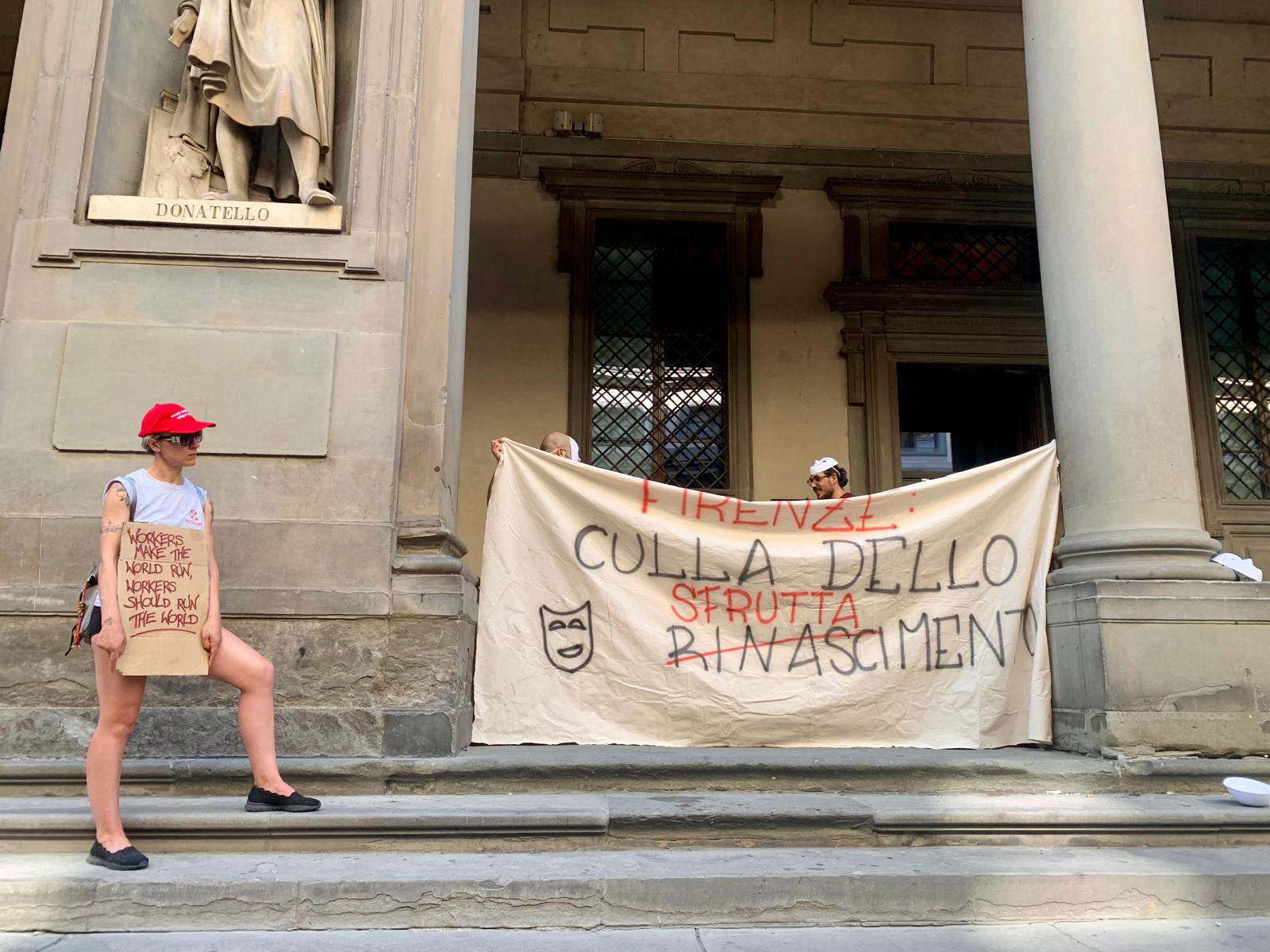Florence ’s cultural heritage workers are making their voices heard again. After last July 19’s mobilization, which attracted national media attention and prompted Congressman Arturo Scotto (Pd) to submit a parliamentary question, the situation has not changed. Weeks later, working conditions remain unchanged. That is why the Assembly of Florence’s cultural heritage workers, employed through subcontracting with the company Dussmann, has announced a new garrison.
The appointment is set for Sunday, September 7, at 9:30 a.m., at the Uffizi square. A date not coincidental: that of the day of free admission to state museums, when the work behind the scenes increases and becomes even more essential to ensure the functioning of cultural sites. An occasion strategically chosen by workers to publicly reaffirm their demand for rights and protections, too often disregarded.
The issues on the table are multiple. First, the application of surcharges for Sunday work is being demanded, as stipulated in Supreme Court ruling No. 31712/2014. A legal principle that therefore, according to the workers, would be disregarded. This demand is accompanied by complaints about the failure to reach the weekly hours stipulated in the contract and the problem of non-payment of overtime. The workers then demand the application of the Federculture national collective contract, which is considered more adequate than the one currently applied in subcontracting. According to the Assembly, the Federculture contract would guarantee more decent economic conditions, greater rights and more effective protection, in line with what is already happening in many Italian civic museums, including some in Florence.

After the July demonstration, which had seen significant participation and the concrete support of many colleagues, particularly those at the Accademia Gallery, hopes for a confrontation seemed to have been rekindled. The parliamentary question submitted by Arturo Scotto had brought the matter to the attention of national institutions. However, according to the workers, neither Dussmann nor other actors involved have provided concrete answers.
The complaint now also extends to Consip, the concessionaire for the ministry in the management of public contracts, which is now called upon to oversee the regularity of relations between the contracting company and the workers. According to workers’ statements, Consip allegedly urged Dussmann about the reported irregularities, but from the company, at least so far, only silence has come. A silence that, according to the promoters of the mobilization, cannot be maintained much longer.
In a particularly significant passage of the communiqué, the Assembly makes a direct appeal to Dussmann: not only to answer the open questions, but to participate publicly in the September 7 presidium, to clarify its position before workers, citizens and the media. A call for dialogue that, however, seems to rest on a deep distrust, fueled by months-or perhaps years-of non-response.
The movement of Florentine cultural heritage workers was born in a broader context, that of the fragmentation of cultural work in Italy. A strategic sector for the country’s identity, often entrusted to cooperatives, subcontracts and atypical contracts, where professional recognition and protections are often weak or absent. Florence, with its unique concentration of museum and monumental heritages, becomes a symbol in this scenario, but also a crucial ground for confrontation. The events unfolding in front of the Uffizi or Accademia speak of common dynamics in many other Italian cities. The September 7 presidium thus presents itself not only as a local demonstration, but as a broader political and social signal. The workers are demanding that their rights no longer be considered ancillary to cultural enhancement. They demand that work in museums, galleries, and historical sites no longer be precarious, invisible, or worse, debased by opaque contractual practices.
While waiting for a stance to be taken by Dussmann, the institutions and Consip, attention therefore returns to the men and women workers who, once again, bring their voices to the streets. A voice that demands a hearing, dignity and justice in an industry that cannot afford to ignore those who make it alive every day.
 |
| Florence, workers' garrison in front of the Uffizi next Sunday free: here are the claims |
Warning: the translation into English of the original Italian article was created using automatic tools. We undertake to review all articles, but we do not guarantee the total absence of inaccuracies in the translation due to the program. You can find the original by clicking on the ITA button. If you find any mistake,please contact us.